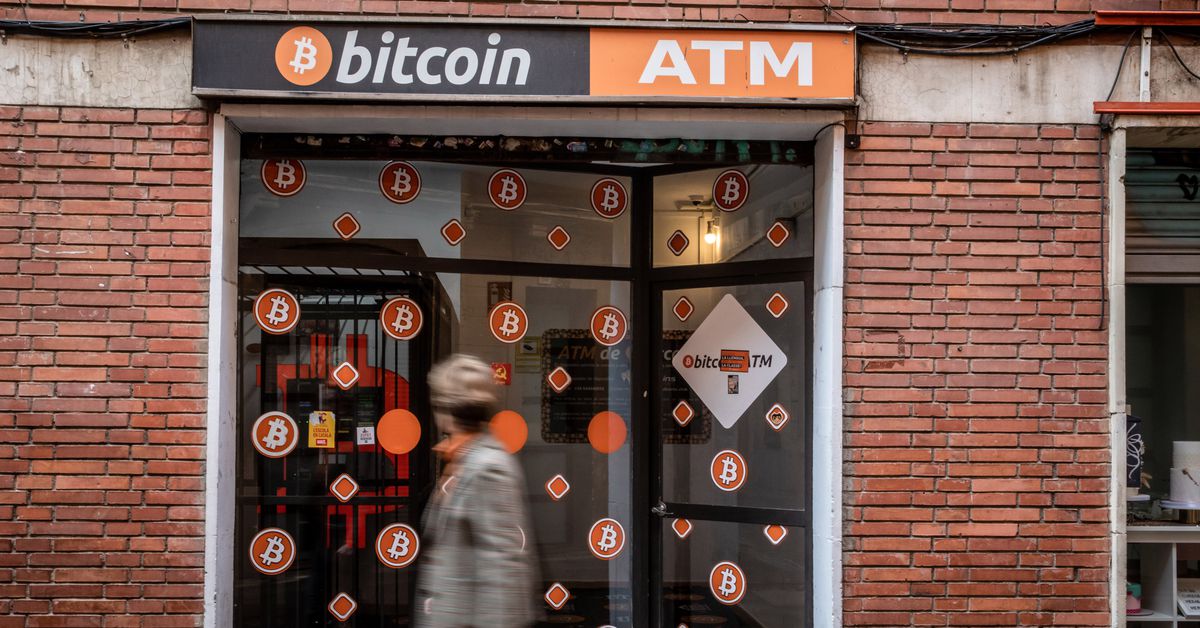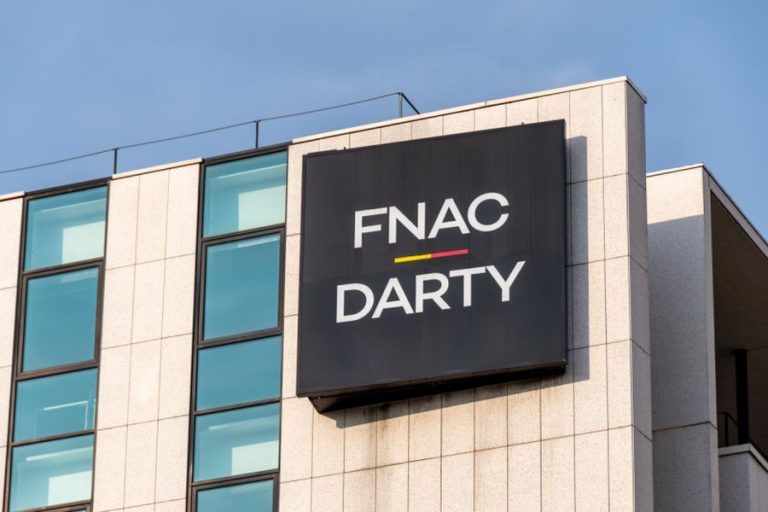
Like a lot of Americans, Sandy Carter has been getting into crypto. She’s already amassed an impressive assortment of cryptocurrency and NFTs, and she even has a Lazy Lion, an NFT illustration of a lion that’s probably worth at least a few thousand dollars on its own. It was only recently, however, that Carter realized she didn’t know what would happen to her small but growing crypto fortune if she unexpectedly died.
“How do you go about planning for that, because it’s on the blockchain and it’s immutable?” Carter, a former Amazon executive who recently joined a crypto startup, explained.
Carter’s not alone. If you don’t own cryptocurrency yourself, odds are you’re related to someone who does. Some 16 percent of US adults say they’ve used crypto, and it feels as though these digital assets are everywhere now, from Super Bowl ads to Bachelor contestants’ Instagram stories. Crypto is new and exciting, and people want to get in early on what’s supposed to be the next big investment trend. That means that things like Web3, NFTs, and decentralized autonomous organizations, or DAOs, are top of mind.
But new crypto investors aren’t necessarily thinking about what might happen to their digital assets in the event of an untimely death.
This is bad news for many because there aren’t currently established ways to ensure that crypto is passed on to the next of kin. Without a plan, crypto investors could die and leave their heirs locked out of a valuable source of financial support and no way to get it back. But even the crypto investors who are trying to plan ahead, along with a few crypto-minded tax lawyers and financial advisers, are running into logistical complications. Now they’re racing to figure out how to make inheritance work in the age of bitcoin — a morbid reminder that even as crypto enters the mainstream, it’s still very new.
The nature of cryptocurrency makes it complicated to pass down. Cryptocurrency is usually stored on the blockchain, a digital ledger that’s formed by a network of computers throughout the world that record transactions, including the exchange of cryptocurrency. People usually make these transactions by using public and private keys. Public keys work like bank account numbers, and serve as an address that you can use to send other people crypto. Private keys work like passwords, and are made of unique, extremely long strings of characters that unlock your crypto. Unlike other types of passwords, however, private crypto keys can’t be recovered once they’re lost or forgotten. That means that without those keys, people who are entitled to inherit their loved one’s crypto won’t be able to get it.
“Most of the time for the assets that we already know and love — your car, your house, your clothes, whatever — that’s handled by law,” Pamela Morgan, an attorney who has written a guide to crypto estate planning, told Recode. “But with these cryptocurrencies, it doesn’t really matter what the law says if you don’t actually have access to transfer those assets.”
Because there’s no formalized way to pass down crypto, investors are coming up with their own sometimes bizarre protocols to guarantee that their heirs will get their digital assets. These plans can involve everything from locking their keys in secret lockboxes to hiring professional services to manage their crypto for their successors. But other crypto owners are still struggling with what to do, and have yet to find financial advisers who know much about crypto or who can even direct them to someone who does.
What happens to crypto after you die?
Technically, nothing. Again, cryptocurrency is stored on the blockchain, so there’s a permanent record of it. That means your cryptocurrency will exist as long as the blockchain exists, and regardless of whether you’re alive or dead.
How your loved ones will be able to use that cryptocurrency is a different question, one that largely depends on whether they know about it and if they know how to access it. Some people have taken an analog approach: writing down their keys on a piece of paper, and leaving that paper where a family member can find it. Other crypto holders are relying on exchanges like Binance and Coinbase, which allow people to trade and sell crypto on the internet. These platforms will hand over control of your loved one’s crypto assets if you prove that you’re legally entitled to them — the same way a bank would. But some crypto holders don’t like these exchanges, which are a consistent target for hackers. Some people also don’t like the idea of ceding control of their crypto to a third party, as the concept undermines the reason why many people are drawn to crypto in the first place. Binance and Coinbase don’t currently allow account holders to name beneficiaries directly on the platform, either.
Because neither of these approaches is ideal, some people have turned to startups that build tech specifically for crypto inheritance. These include companies like Safe Haven and Casa, which, essentially, allow people to lock their crypto keys within several layers of other private keys, which can then be dispersed across several different people. While this tech is supposed to make inheriting crypto easier, it can also lead to some elaborate procedures.
Rudy Steenhoek, an information manager in the Netherlands, is using a strategy that’s sometimes called the dead man’s switch. Steenhoek has given his wife a hard drive with a special type of key, and if she uses this key, Steenhoek will receive a notification. If he doesn’t respond to that notification within a certain amount of time, the tech will presume he’s incapacitated or dead, and his wife will automatically gain access to information she can use to find his crypto assets. While this sounds complicated, his wife won’t need to convince any bank, or even Safe Haven — the company providing the tech — that she’s his rightful inheritor.
[embedded content]
Ultra wealthy people can afford an approach that isn’t as jerry-rigged, and have turned to one of their favorite ways to protect their money, like trusts and family offices. These people — most of whom have either gotten rich by investing in crypto early or have since bought crypto as part of their broader investment strategy — are storing their crypto with specialized financial institutions that focus almost entirely on managing the crypto assets of the financial elite. Hundreds of families have taken this path, Diogo Mónica, the president and co-founder of Anchorage Digital, one of the main firms providing this type of service, told Recode.
While these approaches vary, they’re all supposed to protect against the nightmare scenario: blocking families from their loved ones’ crypto forever. Without these keys, families can find themselves searching — sometimes for years — for their loved one’s digital assets. Across the internet, there are pleas for help from people looking for their loved one’s crypto. Some families have even hired digital forensic researchers to help them find the lost funds, hoping that they find a clue into where their loved one might have stored a record of their key before they died.
“If you don’t create a copy of that key and put that key in a safe place where the people that you trust can find it and know what to do with it, then the wealth that you’ve accumulated in crypto is just going to sit there,” Matthew McClintock, an attorney who specializes in cryptocurrency estate planning, told Recode. “It just is locked away, stored in its address, and nobody can get to it.”
Families have been locked out of enormous fortunes because they couldn’t find their loved one’s keys. A man named Michael Moody was unable to unlock the bitcoin that belonged to his son, Matthew Moody, who died in a plane crash in California. Matthew Moody was an early miner of bitcoin, which means his crypto would be worth a lot of money today. Similarly, lawyers for the estate belonging to the late American businessman Matthew Mellon, who had a reported $193 million worth of a cryptocurrency called XRP, were locked out of his crypto estate because they couldn’t find his private keys, which Mellon had stored on devices scattered across the US before he died. Lawyers were only able to eventually access that crypto because XRP happens to be run by a company that was willing to unlock Mellon’s crypto a little at a time. This approach wouldn’t work for most people, or even for most types of cryptocurrency, including bitcoin and ethereum.
Inheritance is challenging crypto’s libertarian ethos
Theoretically, crypto is supposed to put people’s wealth in their own hands. Because you control your private key — and your crypto is backed up on the blockchain — you don’t need to rely on any financial institution to access your money. You can control your crypto entirely on your own, which is why some crypto investors say they’re their own bank, or even “self-sovereign.”
In this way, inheritance strikes at the root of crypto’s libertarian ethos. If you want to pass your crypto on, you need to trust someone, somewhere, with your financial information. If you access crypto by using an internet-based exchange like Coinbase, you’ve left your key with Coinbase, and you’re relying on that company’s employees to hand over your crypto when your heir asks for it. Leaving your private key in a lockbox for your spouse might seem simple enough, but you have to trust that your spouse knows what to do with it.
Basically, you have to decide how much you care about your crypto’s security when you’re still alive, and how much you care about your family’s access to that crypto once you’re dead.
Striking that balance isn’t easy. Some people have shared their keys with their family members for safekeeping, only for that family member to turn around and steal their crypto, Paul Sibenik, a case manager at the blockchain forensics firm CipherBlade, told Recode. And while putting your crypto key information in your will might seem like an easy alternative, these documents sometimes become public during probate, so there’s a risk that your crypto key — and the ability to spend your crypto — becomes public too. There’s also the fact that many Americans haven’t written a will at all.
“Ask anyone that owns stock on the street: What happens to your stocks when you die? They don’t know. They haven’t prepared,” said Tyrone Ross, a financial adviser and founder of 401STC, a storytelling consultancy. “Crypto is no different.”
record high of $68,000. That means even just one bitcoin is now enough to cover expensive medical bills, college tuition, or even a downpayment on a house. In fact, crypto is so valuable that you might even owe taxes on it. The IRS considers virtual currency a form of property, so you might owe the government money if you sold crypto after inheriting it.
At the same time, that people are inheriting crypto is just another sign that cryptocurrencies have become a real part of everyday finances. After all, you can now access crypto from ATMs, mobile payment apps like Venmo, your credit card company, and even your job. So many people have crypto that these digital assets are even popping up in divorce proceedings. Since crypto has become such a big part of life, it makes sense that it would become a part of death, too.
But in many respects, the uncertain state of cryptocurrency estate planning is evidence that we still don’t know what role crypto will ultimately play in our lives, and that we’re still figuring out how to even use it. What we do know is that none of us live forever, even if our crypto might.






